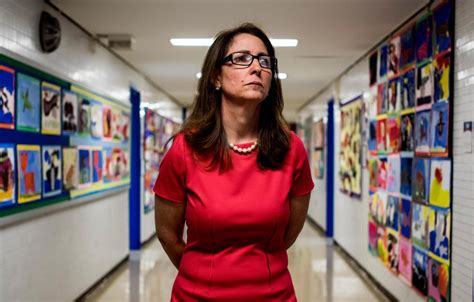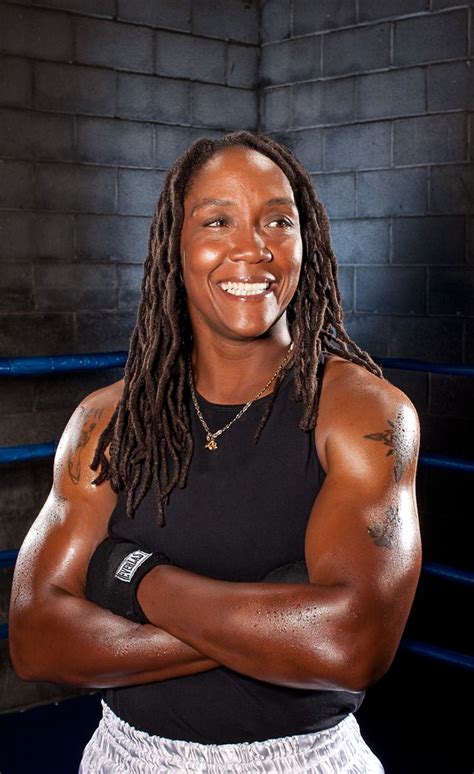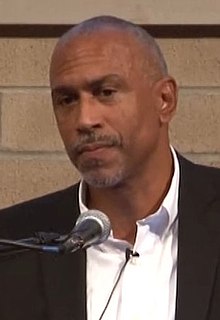A Quote by Eva Moskowitz
I want kids to be able to escape failing schools that trap them. And it's an unequal trapping of children. The most affluent find a way to escape. They move to a great suburban district or send their kid to a private school. The people who are trapped in the worst schools that have been terrible often for half a century? Those are the poorest kids.
Related Quotes
Apparently almost anyone can do a better job of educating children than our so-called 'educators' in the public schools. Children who are home-schooled by their parents also score higher on tests than children educated in the public schools. ... Successful education shows what is possible, whether in charter schools, private schools, military schools or home-schooling. The challenge is to provide more escape hatches from failing public schools, not only to help those students who escape, but also to force these institutions to get their act together before losing more students and jobs.
All parents want to send their children to the best possible schools. But because a good school is a relative concept, a family cannot achieve its goal unless it outbids similar families for a house in a neighborhood served by such a school. Failure to do so often means having to send your kids to a school with metal detectors at the front entrance and students who score in the 20th percentile in reading and math. Most families will do everything possible to avoid having to send their kids to a school like that. But because of the logic of musical chairs, they're inevitably frustrated.
Everybody wants to have sex - you don't have to have a baby when you're 16. You don't have to do drugs. I think our Sunday schools should be turned into Black history schools and computer schools on the weekend, just like Hebrew schools for Jewish people, or my Asian friends who send their kids to schools on the weekend to learn Chinese or Korean.
Democratic politicians want to solve the crisis of poor education by taking more of your money and using it to reduce classroom sizes in the government schools. Republican politicians want to solve the crisis by taking more of your money to provide vouchers to a handful of the poorest students in each area, paying for a part of the tuition expense at private schools. But before long this 'reform' would make those private schools indistinguishable from the government schools ... Vouchers are an excellent way for the government to increase control over private schools.
What people don't realize I have put 160 kids through school. I had a gym full of children. Some of those kids slept in the gym. Some of those kids lived in the gyms. I went to those kids schools. I think with the training, I can't make a fighter have that passion that I have, and it takes years to develop a fighter.
School choice opponents are also dishonest when they speak of saving public schools. A Heritage Foundation survey found that 47 percent of House members and 51 percent of senators with school-age children enrolled them in private schools in 2001. Public school teachers enroll their children in private schools to a much greater extent than the general public, in some cities close to 50 percent.
Praise God for those of you who do homeschool. I can't emphasize enough: Do what you can to get your kids out of public school. If you can't afford to put them in a private Christian school, homeschool. Because they're being poisoned in the public schools. They're being brainwashed in the public schools, with all this secularism, with all this immorality that is being immersed into them on a daily basis.
As damaging as the obsessive emphasis on testing often proves to be for kids in general, I believe that the effects are still more harmful in those schools in which the resources available to help the children learn the skills that will be measured by these tests are fewest, the scores they get are predictably the lowest, and the strategies resorted to by principals in order to escape the odium attaching to a disappointing set of numbers tend to be the most severe.
Just as members of American teachers unions often send their own children to private schools, so unionized workers at government-run hospitals in Britain have insurance that allows them to go to private hospitals. In both cases, those on the inside realize how bad these institutions are, regardless of what they say to those on the outside.
A good school is a relative concept, and the better schools are located in more expensive neighborhoods. But when everyone bids more for a house in a better school district, they succeed only in bidding up the prices of those houses. As before, 50 percent of all children will attend schools in the bottom half of the school quality distribution. As in the familiar stadium metaphor, all stand, hoping to get a better view, only to discover that no one sees better than if all had remained seated.


































